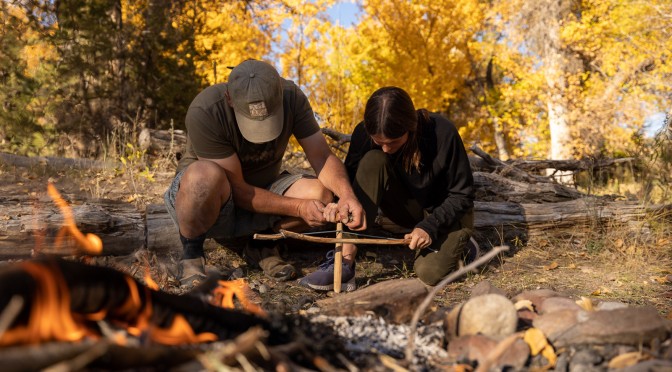by Jamie Rankin
Southwest Montana offers outdoor pursuits of all difficulty levels—and some that walk a fine line between risk and reward. But regardless of the challenge and level of expertise (or lack thereof), accidents happen. Every outdoor-goer should have knowledge on how to optimize safety, and how to handle an unexpected turn for the worse. Here’s a rundown on some courses we recommend for safety, survival, and for growing your outdoor skillset.
Wilderness First Aid
No medical experience? No problem. Wilderness First Aid (WFA) preps students on basic medical practices in an outdoor setting. From assessing a patient to improvising splints with outdoor gear, this course will prepare you to stabilize a situation until a trained medical professional can step in. There are many local course providers; a web search should lead you to a course that fits your schedule. For students, check out MSU’s outdoor-activity classes.
Wilderness First Responder
If you’ve mastered the basics and want more medical preparation, take a Wilderness First Responder (WFR) course. These 80-hour courses are a mix of classroom time and accident scenarios; they teach students the skills needed stabilize a patient for an extended period of time. The same organizations that offer WFAs typically teach WFR courses as well.
Belay Certification
If you want to get into climbing but aren’t sure where to begin, Spire Climbing Center is a great place to start. As a member, you get access to beginner- and intermediate-level climbing instruction; including auto-belay, standard belay, and more. Already know the basics? Spire has an assortment of classes and clinics for intermediate and advanced climbers, too.
Green University
Botanist and outdoorsman Thomas Elpel holds workshops, classes, and events focused on wilderness survival skills and sustainable living. From fire-starting, deer processing, and foraging to making buckskin clothing, Elpel will teach you how to be confident and self-sufficient in the woods.
Avalanche Courses
When venturing into the backcountry in winter, avalanche danger is ever-present. Snow conditions can be tricky to read, so a course is critical in gaining basic competency—both in avoiding slides and rescuing fellow skiers should they be caught in one. Courses can be taken through Gallatin National Forest Avalanche Center (GNFAC), Montana Alpine Guides (MAG), MSU, Beartooth Powder Guides, and Big Sky Backcountry Guides.
Mountain-Bike Clinics
Crosscut Mountain Sports Center offers an assortment of mountain-biking clinics for all skill levels and ages, including introductory courses, skills-specific classes, and even guided rides. Developing your two-wheeled talent will not only allow you to push yourself in a safer manner, but will also make the sport more fun.

